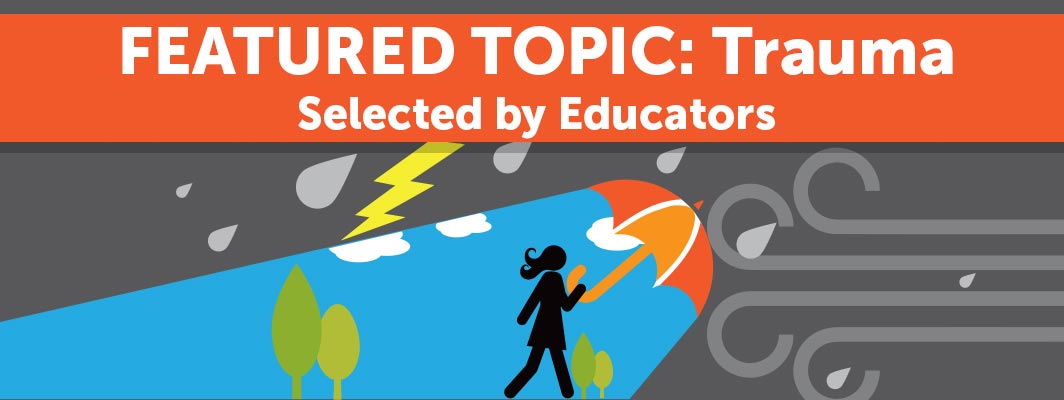
One district thoughtfully embedding trauma-informed practices into their everyday work is Liberty 53 School District in Missouri. We spoke with Becky Gossett, Executive Director of Special Programs, and Robert Fisher, one of the district’s lead counselors, to hear how they support students who have gone through adverse experiences.
Gossett and Fisher explained that Liberty 53 staff share an understanding of students as “whole children” rather than purely academic beings, so responding to their individual needs is key. Understanding the science of adversity, including educators’ role in encouraging resilience, is helping Liberty 53 design schools and classrooms to help children living with trauma thrive. In addition to providing access to counselors and social workers in all district buildings and referring students and families to community resources, the district’s strategy consists of staff training, community learning, and a new approach to student discipline.
Liberty 53 provides education and training opportunities for staff to recognize and respond to trauma. Some counselors, social workers, and educators attend conferences and certification programs, including trainings through the ChildTrauma Academy; these staff share new strategies with their colleagues. One of the most buzzed-about staff education opportunities has been a series of screenings of the documentary “Resilience: The Biology of Stress & the Science of Hope.” These well-attended events include facilitated discussions about how to respond to students with such experiences. Attendees leave with new knowledge about trauma and its effects on children, as well as action steps.
The district also works to educate students, parents, and community members about trauma through programs and events. They have set up student and parent groups with local experts who have presented on topics including student mental health, the prevalence of trauma, and the adolescent brain. The Liberty Alliance For Youth (LAFY), a local grassroots group that helps the district take on student mental health issues, recently screened the “Resilience” documentary for parents and Liberty community members, which helped the community and district staff to start speaking the same language regarding trauma.
Finally, being trauma-informed can involve rethinking discipline. When students misbehave in Liberty 53, staff never start with punishment. Instead, they focus on understanding students’ experiences and why students may not be in the optimal frame of mind for learning. Educators throughout the district are starting to use Conscious Discipline – a trauma-informed social and emotional learning program, including behavior management strategies and classroom structures, to help staff understand the brain and gain tactics for responding to conflict. So far, in the buildings in which Conscious Discipline has been utilized the most, staff have noticed fewer office discipline referrals. Some elementary schools throughout Liberty 53 have also introduced Focus Rooms that offer students a comfortable setting to get their behavior under control, often using mindfulness practices. Focus Rooms have helped staff build relationships with individual students, which has resulted in increased positive referrals (e.g., “It seems like you could use some time in the Focus Room to relax and reflect.”) rather than reactive referrals (e.g., “Please leave the classroom; you are being disruptive.”).
While Liberty 53 can’t prevent existing trauma, Gosset shared that the district can often deescalate negative situations by promoting mindfulness and providing a safe and secure environment for students. And while not all staff can be trained as therapists or counselors, they can all gain an awareness of trauma, increase their ability to promote positive behaviors and, when necessary, refer children to professionals trained to help.
While Liberty 53 and others are tackling this challenge, we know that many schools and districts still feel unprepared to serve students who have experienced trauma. Educators need access to research on how traumatic experiences, and the associated toxic stress, affect the development and learning of children and adolescents. They also need to know what they can do to create safe and supportive environments, and build caring relationships to help foster resilience in students.
We’re pleased to share a new Featured Topic page on Trauma on the Digital Promise Research Map. This new page includes a research summary with key findings, such as the potential of early education programs to help children who have experienced trauma and effective strategies for boosting resilience, including how to guide students as they practice coping with “manageable stress.” We’ve also curated practical resources from organizations including Harvard University’s Center on the Developing Child, the National Child Traumatic Stress Network, and Edutopia.
For more research-informed tips, check out the Trauma Featured Topic Page on the Digital Promise Research Map.